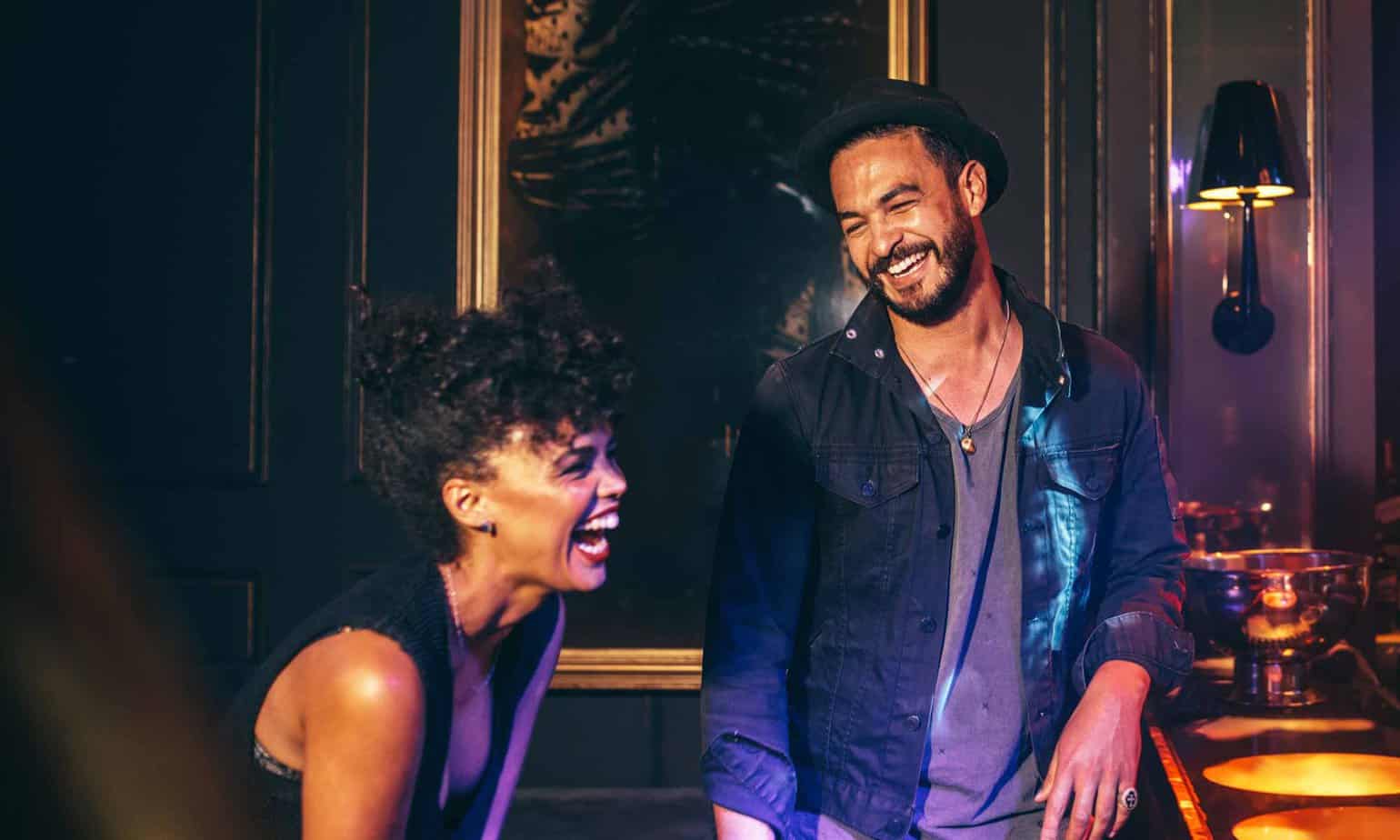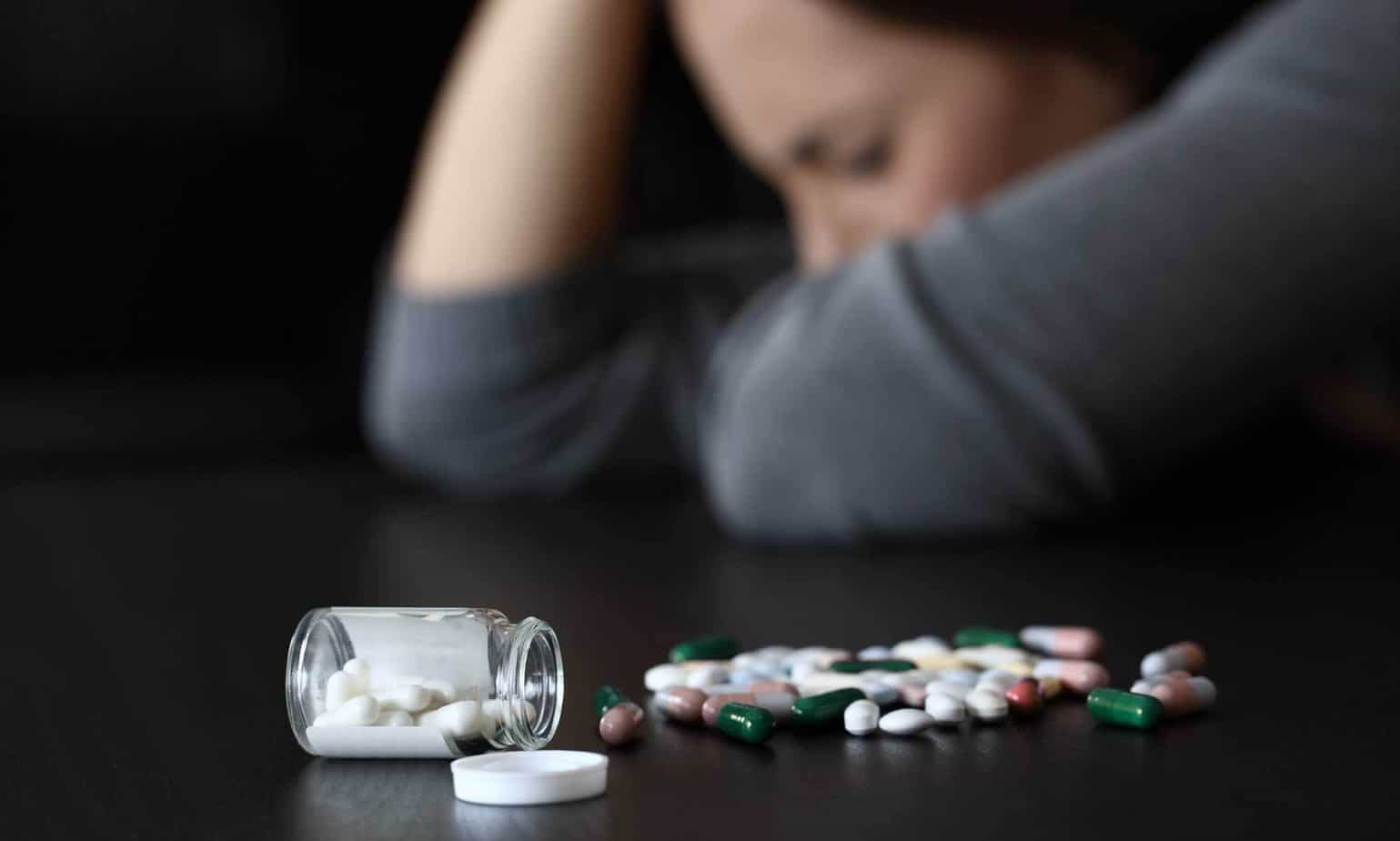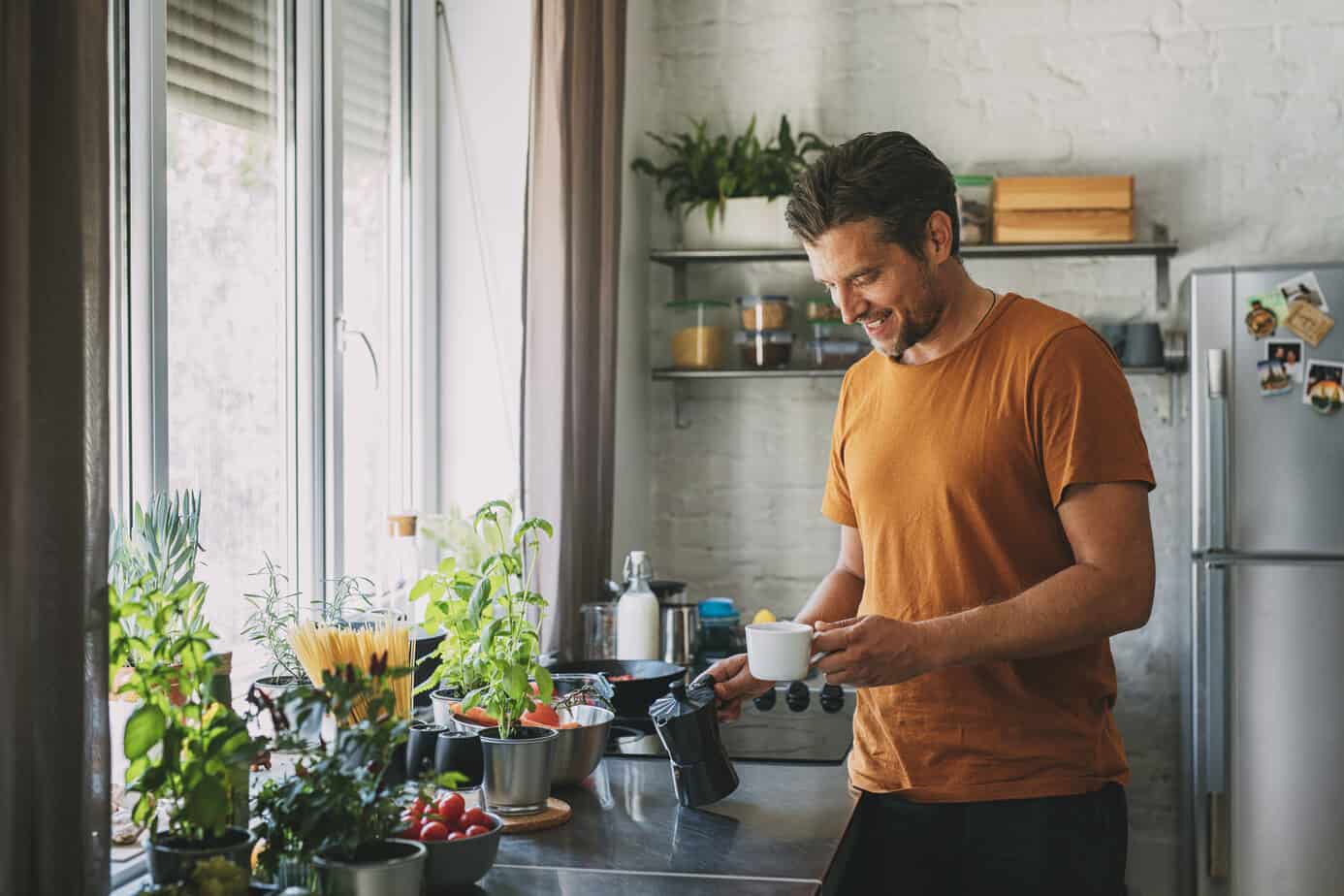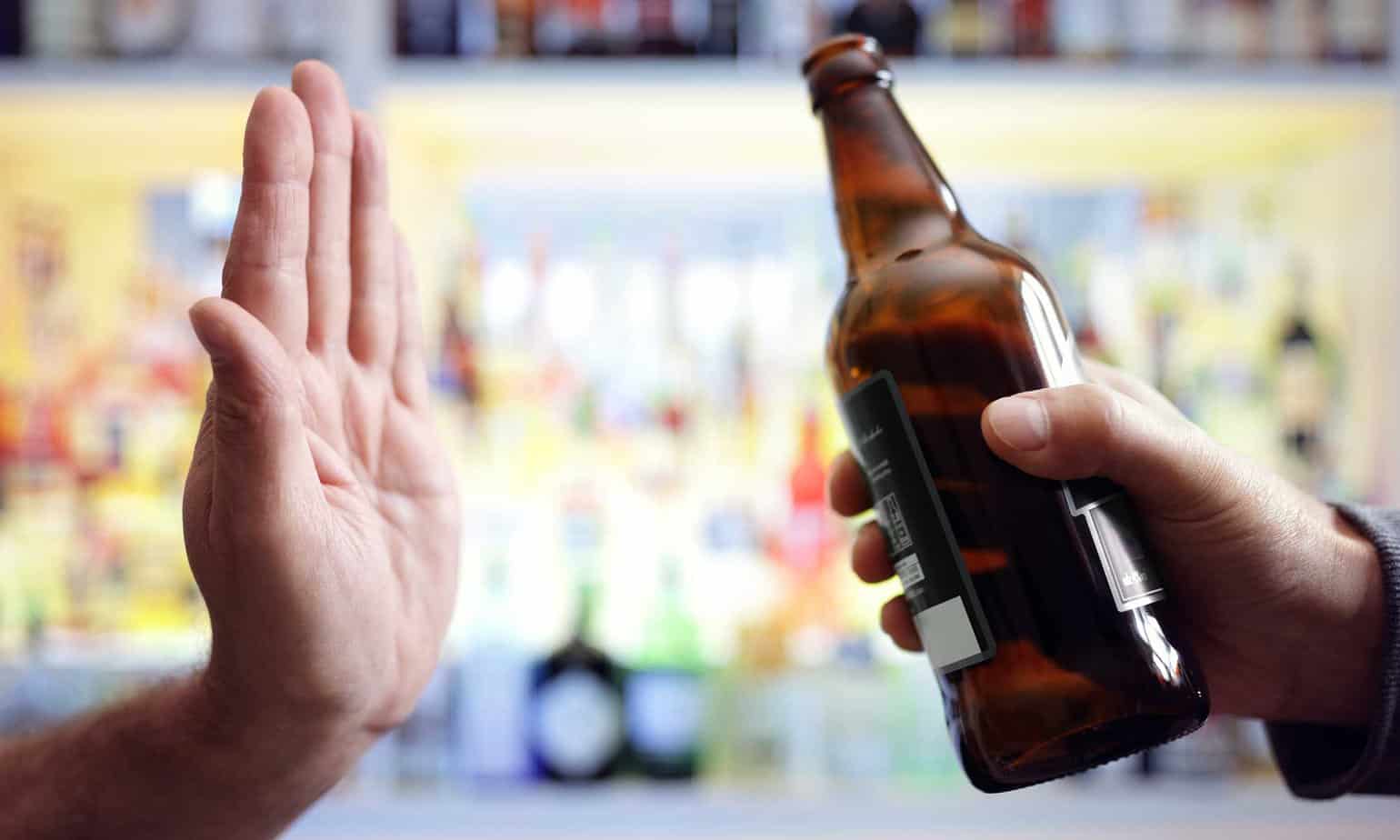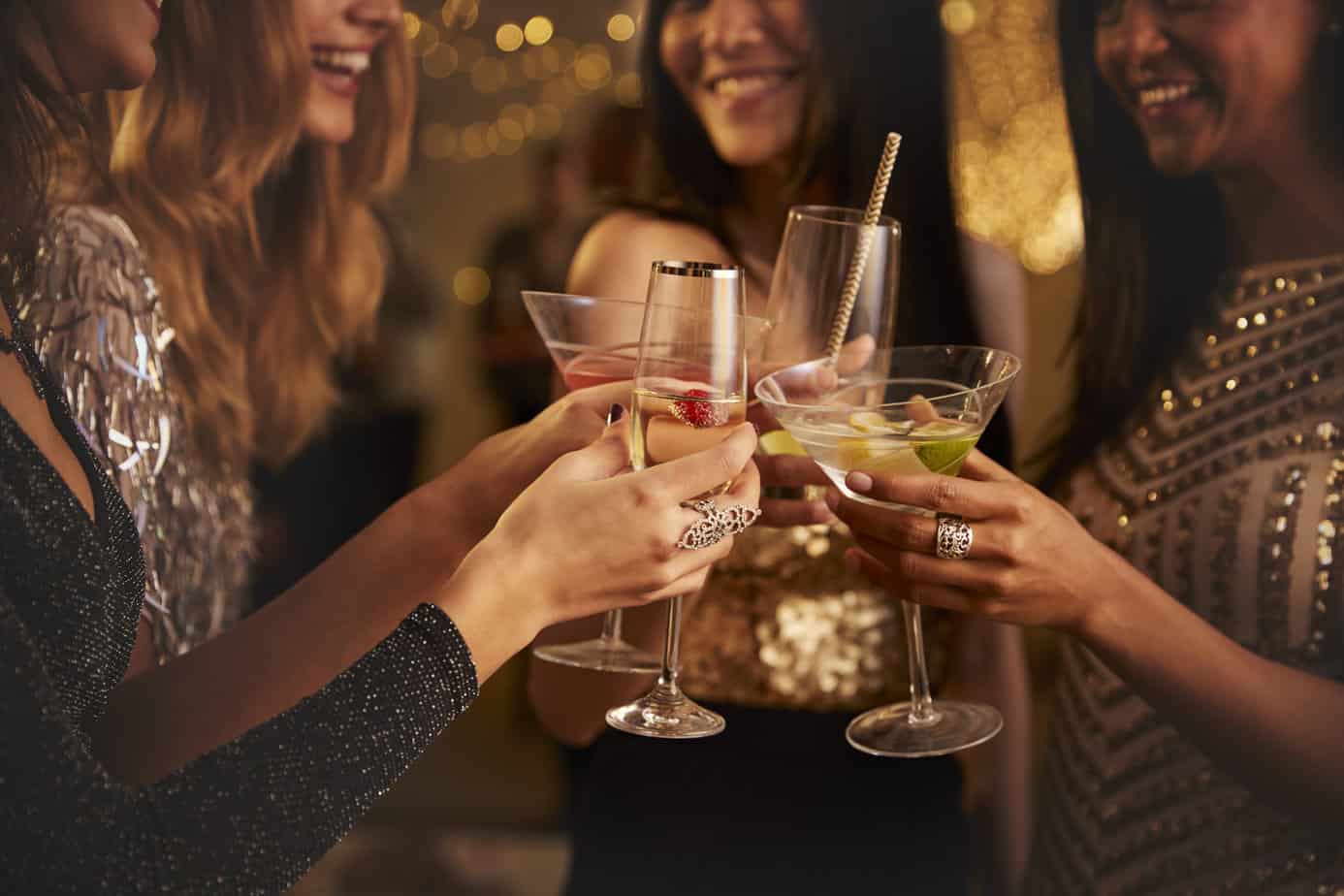From birthdays to funerals, alcohol has always played a big role in American life. But the way Americans view alcohol has started to change, and the sober-curious movement is gaining momentum. The trend encourages people to live a hangover-free life by reducing or eliminating alcohol and focusing on their health and wellness.
“We don’t have to drink. There’s nothing that says, as an adult being, you have to consume alcohol, and yet, our society doesn’t really lead us to believe that. In fact, it’s very much the norm to drink,” says Ruby Warrington, author of the book, Sober Curious: The Blissful Sleep, Greater Focus, Limitless Presence, and Deep Connection Awaiting Us All on the Other Side of Alcohol.
Sober Curious Movement Growing in Popularity
Many believe that the sober-curious trend caught on because people are more focused than ever on their overall well-being. And data proves it — Americans are taking more mindful breaks throughout the day, normalizing mental health challenges in the workplace, and exploring the benefits of spending time in nature. Giving up alcohol seems like the next logical choice in becoming a healthier, more productive person. But choosing not to drink, especially in social situations, can be challenging. Fortunately, people everywhere are coming up with solutions to help individuals stick to their sober curious goals.
Abby Ehmann, a New Yorker who’s had a range of “weird jobs” from being a graphic artist to an X-rated writer, hopped into the sober community by opening up a sober bar/tea shop called Hekate. Located in the East Village of Manhattan, Hekate is known for its tasty mocktails, enchanting and witchy atmosphere, and for being a popular destination for sober NYC residents. More and more, these kinds of safe spaces are popping up all over the country, from Getaway in New York City, NY to Sans Bar in Austin, TX. And sober bars are not the only options for those who choose to live alcohol-free. Events like Daybreaker, a morning dance party, are showing people that it is possible to have fun sober.
Even major beverage brands have jumped on the sober curious train, proving that this trend is here to stay. According to Nielsen IQ data, non-alcoholic spirit sales nearly doubled in 2022, surpassing the sales increases of non-alcoholic wine and beer. Beverage giant Budweiser has said 20 percent of its global beer volumes will be low or non-alcoholic by 2025. Coca-Cola is also getting on board with its latest venture: Bar None, a line of non-alcoholic adult beverages.
In the past, most who chose to live a sober life had a history of alcohol abuse or had been impacted by it. But the sober-curious movement is encouraging many people to reevaluate their drinking habits and embrace a life sans alcohol. The sober-curious movement aims to make sobriety more appealing by reshaping the narrative that sober is boring.
How to Start Living a Sober Curious Lifestyle
We explored why the sober curious movement has taken off, but you may be wondering how you reduce your alcohol intake, or better yet, how you quit drinking altogether. Program Manager of Wilton Outpatient Services, Kristin Hankins, shares five tips below for getting started.
- Set Realistic Goals. Be clear about what you want to accomplish. Are you looking to abstain from alcohol entirely for a certain length of time? Or do you want to cut back on drinking during the week? Be very clear about what cutting back looks like. Sober curious can be filled with ups and downs so be kind to yourself if you don’t make your goal, see what it takes to get back on track.
- Find Alternative Activities. Perhaps you often find yourself coming home from work and having a glass of wine as you’re preparing dinner. Some people tend to use drinking as a way to socialize or relax, but this can quickly become a slippery slope of alcohol dependence if you’re not careful. No one on this earth has an inner thought that they hope to develop an addiction. Start by making changes around the places you have used a substance most often. Be curious and replace those habits where you were once isolating yourself and find healthy activities that bring you joy. These might include connecting with others, joining a book club, exploring an art class, or spending more time in nature.
- Practicing mindfulness. Mindfulness involves being fully present in the moment and non-judgmentally observing your thoughts and feelings. When you feel overwhelmed or are experiencing a craving, try practicing mindfulness techniques like meditation, yoga, or simply taking a few deep breaths.
- Experiment with non-alcoholic beverages. Many bars and restaurants now offer a wide variety of non-alcoholic options, from mocktails to artisanal sodas. Checking out the menu and going in with a plan is essential to navigating a social scene at first. Experiment with different flavors and brands to find the ones that you enjoy the most. Never go to any establishment hungry or thirsty, this is how not as informed choices happen.
- Reach out to your support system. Tell family members and close friends about your sober curious goals. They will not only hold you accountable, but they can also be there when you are craving a drink or are having a rough day. Be prepared that some of your supports might share observations that you’re not ready to hear, so be clear in your intention to living sober curious.
What Are the Benefits of Going Alcohol-Free?
After limiting drinks before bed and starting a healthy nightly routine, a person will notice an improved quality and quantity of sleep. Alcohol, as well as other substances, have been known to reduce REM sleep and increase blood sugar dysregulation. As a result, this causes more sleep disturbances, leading to 3:00 AM wake-ups, increased hunger and thirst, as well as increased urges to use the restroom.
Living a sober lifestyle can have numerous other health benefits, including improved mood and increased energy. It can also lead to a decrease in overall stress levels and improved relationships. Another surprising, yet positive outcome that most people don’t know about is your skin looking clearer and more hydrated, since alcohol is a diuretic that dries out the skin. (Who knew there was really a fountain of youth for the skin!)
Going sober curious allows for the ability to fully experience life without the haze of alcohol. Living a sober life allows one to be more present in their daily lives, to fully engage with the world, and to connect with others on a deeper level. It’s important to note that navigating your life as a person who does not use substances is not just for those struggling with substance use disorder but for anyone looking to live a healthier, more fulfilling life.
Signs You May Need Help
If you want to embrace a sober lifestyle, know that quitting alcohol use abruptly on one’s own can be more dangerous than many realize. People with alcohol use disorders (AUDs) should strongly consider beginning their recovery process in a medically monitored detox program, where professionals can treat potentially severe alcohol withdrawal symptoms, such as seizures or comas, and or death.
People can generally recognize that they have a drinking problem by asking themselves the following questions:
- “Do I find it difficult to stop drinking once I start?”
- “Is alcohol interfering with my personal or professional obligations, or has it replaced activities I previously enjoyed?”
- “Has my alcohol tolerance increased?”
- “Do I feel withdrawal effects, including nausea, sweating, or restlessness, when I’m not drinking?”
- “Have loved ones pointed out my excessive drinking?”
For people with alcohol use disorders, sobriety is a necessity and a long-term commitment. If you are still unsure if you fall within this category, reach out to an expert for an accurate assessment.
If you or a loved one is struggling with addiction, Mountainside can help.
Click here or call (888) 833-4676 to speak with one of our addiction treatment experts.

 By
By 